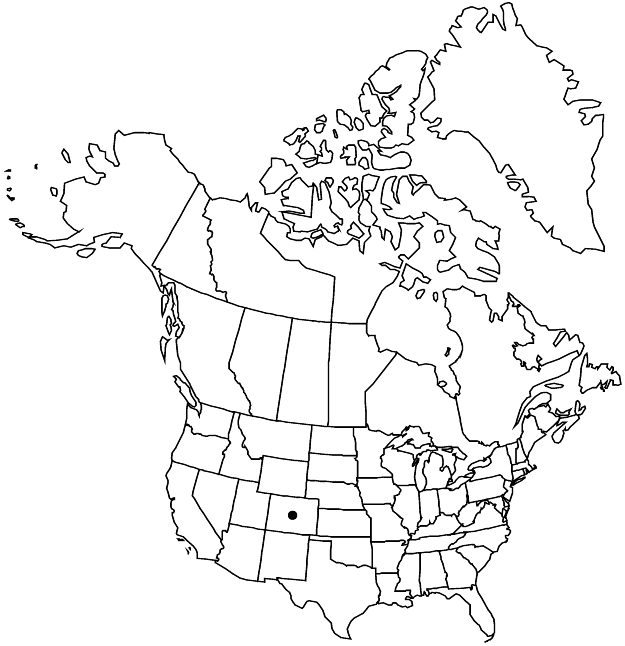Eriogonum coloradense
Bull. Torrey Bot. Club 33: 53. 1906.
Herbs, matted, scapose, (0.1–)0.3–0.6 × 0.5–5 dm, glabrous, grayish. Stems spreading, often with persistent leaf bases, up to 1/5 height of plant; caudex stems matted, glabrous; aerial flowering stems erect, slender, solid, not fistulose, 0.3–1(–1.2) dm, glabrous. Leaves basal, 1 per node but congested; petiole (0.2–)0.5–3 cm, tomentose to floccose or glabrous; blade oblanceolate to lanceolate or narrowly spatulate, 1–4(–5) × 0.3–0.6(–0.9) cm, densely white-tomentose abaxially, thinly floccose or glabrous and green adaxially, margins plane or thickened. Inflorescences capitate, 0.7–1.5 cm wide; branches absent; bracts 3, semileaflike, usually triangular, 1.5–3(–4) mm. Peduncles absent. Involucres 3–4 per cluster, turbinate-campanulate, 2–3.5 × 1.5–2.5(–3) mm, glabrous except for cottony tomentum on teeth, rarely thinly floccose; teeth 5, erect, 0.3–0.7(–1) mm. Flowers 2.5–3.5(–4) mm; perianth white to rose, glabrous; tepals connate proximal 1/4, monomorphic, oblong to ovate; stamens exserted, 3.5–4 mm; filaments sparsely pilose proximally. Achenes light brown to brown, 2.5–3.5 mm, glabrous.
Phenology: Flowering Jul–Sep.
Habitat: Sandy to gravelly flats and slopes, high-elevation sagebrush and marginal meadow grassland communities, montane or subalpine conifer woodlands
Elevation: 2800-3900 m
Discussion
Of conservation concern.
Eriogonum coloradense is a high-elevation species closely allied to E. lonchophyllum. It is restricted to the backbone of the central Colorado Rocky Mountains in Chaffee, Gunnison, Park, Pitkin, and Saguache counties. The Colorado wild buckwheat is listed as a “sensitive” species for Colorado. It is occasionally seen in cultivation.
Selected References
None.
